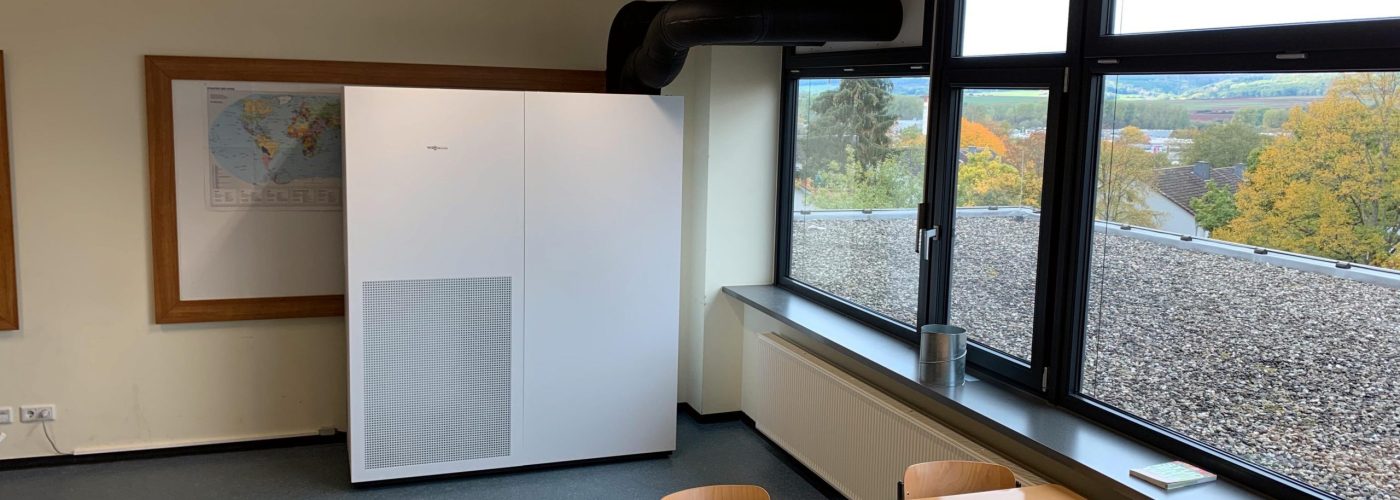Viessmann has created an air ventilation solution to combat the spread of COVID-19 in schools. The company’s unique new hybrid ventilation unit, the Vitovent 200-P, provides closed rooms with constant air circulation of filtered air. This greatly reduces the risk of occupants breathing in contaminated aerosols which can spread across indoor spaces and hang in the air for hours, especially in winter when windows are more likely to be closed and heating operating.
The Vitovent 200-P counteracts the danger of contaminated aerosols by applying the principle of displacement ventilation. This works by providing a constant supply of filtered fresh air into the room at low velocity through diffusers close to the floor, then extracting the air near ceiling height after it has risen due to heat exchange with occupants’ bodies. Good air quality and a comfortable learning atmosphere are ensured by the constant supply of fresh air with heat and moisture recovery, the continuous air circulation, and the extraction of air containing CO2 and VOC (Volatile Organic Compounds) pollution.
Viessmann’s Co-CEO, Maximilian Viessmann, commented: “As a 103-year-old family business, we are committed to designing living spaces for generations to come. Right now, it is crucial that we quickly and pragmatically safeguard our children to maintain a part of their social life and access to education in these challenging times.”
The effectiveness of the Vitovent 200-P was proven in a pilot project at the Hans-Viessmann-School, a vocational training institution with about 1,000 students in the town of Frankenberg, Germany. Occupants of the school commented on the system’s quiet operation and a noticeable improvement in air quality. Work has since begun on supplying the system – which can be easily and inexpensively retrofitted by replacing a window panel with an isopanel – to a further 50 schools and social institutions in Germany.
A separate announcement will be made when the Vitovent 200-P becomes available in the UK. In addition to making schools safer, the system can be equally beneficial in universities and other indoor spaces which remain open and busy with people despite the risk of coronavirus infection.
The Viessmann Group also took measures earlier this year to help society fight the coronavirus pandemic by converting part of its manufacturing facilities in Allendorf, Germany, to produce its own ventilators, mobile intensive care units, respiratory protective face masks, and hand sanitizer. The design of Viessmann’s gas boilers, with their electronic gas and air connections, lent itself well to the design and development of a simplified ventilator in a short timeframe.





